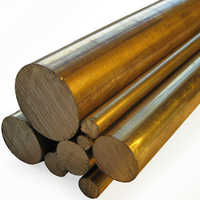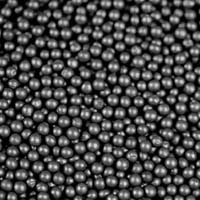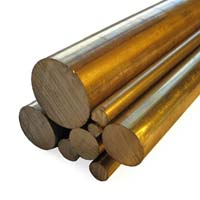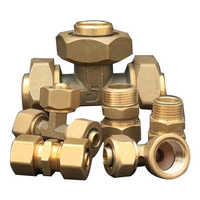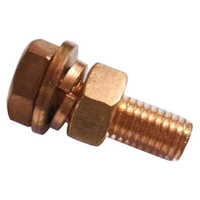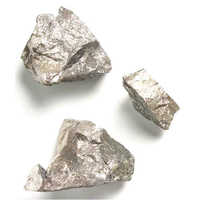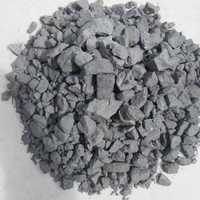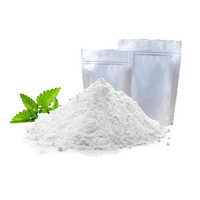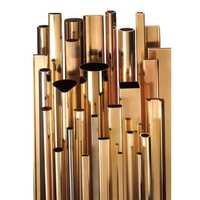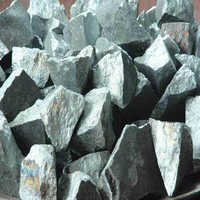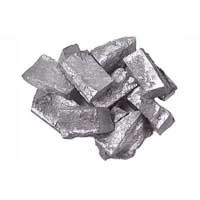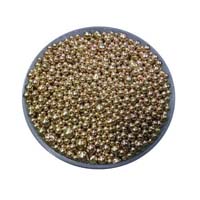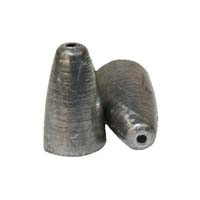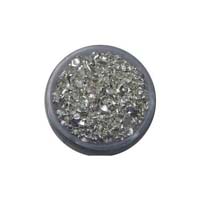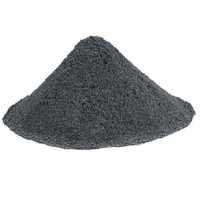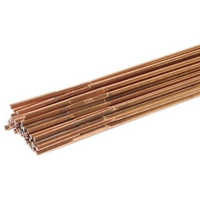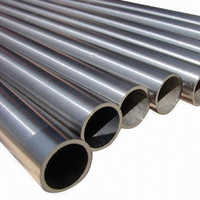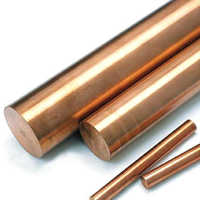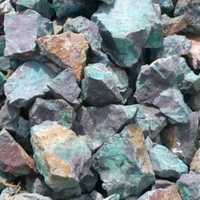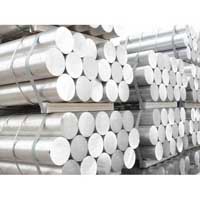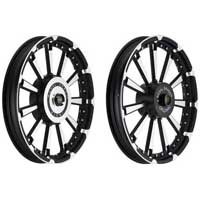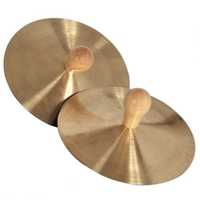Metals & Alloys
(5362 products)
Related Categories
Aluminium & Foils
Aluminium Scrap
Aluminum & Aluminum Products
Asbestos Products
Base Metals & Articles
Bentonite Products
Bronze
Bullion-Gold & Silver
CI Castings
Cast Products & Equipment
Copper Products
Copper Scrap
Diamonds
Diamonds-Polished
Ferroalloy Products
Ferrous & Non-ferrous Metal
Forged Products & Equipment
HMS Scrap
Ingot
Investment Castings
Iron & Steel
Iron & Steel Castings
Iron Scrap
Lead & Articles Thereof
Lead Scrap
Magnets & Magnetic Devices
Metal Mineral
Metal Products & Powder
Metal Scrap
Metal Stocks
Metals & Alloys
Mica
Minerals & Refractories
Nickel Alloy
Non-ferrous Metal Alloy
Non-ferrous Metal Products
Non-metallic Mineral Deposit
Non-metallic Mineral Products
Pressure Die Castings
Ramming Mass
Sand Castings
Scrap
Shell Mould Castings
Steel & Stainless Steel Products & Components
Steel Balls
Steel Components
Steel Re-rollers
Steel Scrap
Wire Mesh
Wire Ropes
Zinc Products
Zinc Scrap
Explore More Categories
Metal Alloy Aluminium Grade Enaw-5005A / Enaw-Almg1(C)
Price: 5000 INR (Approx.)/Number
MOQ - 1 Number
Product Type - Metal Alloy
Material - Aluminium
Alloy - Magnesium
3 Years
Business Type: Manufacturer | Distributor
JAYANT IMPEX PVT LTD
Manganese Bronze Application: Machinery
Price: 700.00 INR (Approx.)/Kilograms
MOQ - 500 Kilograms/Kilograms
Hardness - 100%
Product Type - Metal
Material - Manganese bronze
17 Years
Business Type: Manufacturer | Distributor
GOVIND METAL CO.
Keolin Clay (Grade-KN83)
Price: 16500.00 INR (Approx.)/Ton
MOQ - 10 Ton/Tons
7 Years
Response Rate: 100.00%
Business Type: Distributor
RYAN INTERNATIONAL
Indian Inquiries Only
14k-Yellow Gold Alloy
Price: 1500 INR (Approx.)/Unit
MOQ - 1 Unit/Units,
15 Years
Business Type: Manufacturer | Supplier
INDIAN PLATINUM PRIVATE LIMITED
Monel Metal Application: Construction
Price: 250.00 - 450.00 INR (Approx.)/Piece
MOQ - 500 Piece/Pieces
Product Type - Metal Alloy
Application - Construction
10 Years
Business Type: Manufacturer | Distributor
NASCENT PIPES & TUBES
Calcium Lead Alloy Application: Metal Component
MOQ - 10 Metric Ton
Purity - High
Hardness - Rigid
Material - Metal
8 Years
Business Type: Manufacturer | Supplier
NIKITA INDUSTRIES PVT. LTD.
Indian Inquiries Only
Titanium Bar
Price: 10.00 - 100.00 INR (Approx.)/Piece
MOQ - 1 Piece/Pieces
18 Years
Business Type: Exporter | Trading Company
STEEL MART
Altisi Sputtering Target Hardness: Rigid
MOQ - 100 Piece/Pieces
Purity - High
Hardness - Rigid
Product Type - Metal
1 Years
Business Type: Manufacturer | Exporter
Tarfilm Hi-Tech Co., Ltd.
Powder Silica Fume
Price: 7.00 - 16.00 INR (Approx.)/Kilograms
MOQ - 10000 Kilograms/Kilograms
Types of Refractories - Other
Shape - Powder
8 Years
Business Type: Manufacturer | Distributor
REFSTEEL SOLUTIONS
Indian Inquiries Only
Silver Alloy 20 Pipes
Price: 2000 INR (Approx.)/Kilograms
MOQ - 100 Kilograms/Kilograms
Color - Silver
Product Type - Alloy
Material - Alloy
2 Years
Business Type: Manufacturer | Supplier
NINE PIPING SOLUTIONS
European Standard Beams Application: Construction
Price: 130 INR (Approx.)/Kilograms
MOQ - 500 Kilograms/Kilograms
Product Name - Steel Products
Steel Product Type - Other, European Standard Beams
Grade - S355, S235, Etc
Business Type: Manufacturer | Distributor
Eminent Pipe & Profiles Private Limited
Phosphor Bronze Round Rods Dimension(L*W*H): 1" - 6" Inch (In)
Price: 700.00 - 900.00 INR (Approx.)/Kilograms
Dimension(L*W*H) - 1" - 6" Inch (in)
10 Years
Business Type: Manufacturer | Distributor
RAKESH METAL & TUBES
Inconel Flange Application: Steel Making
Price: 1000.00 - 1500.00 INR (Approx.)/Piece
MOQ - 100 Piece/Pieces
Hardness - Yes
Product Type - Metal
Material - Carbon steel
16 Years
Business Type: Manufacturer | Distributor
DUPLEX STEEL & ENGINEERING COMPANY
Grey Casting Powder
Price: 15.00 - 50.00 INR (Approx.)/Kilograms
MOQ - 1 Kilograms/Kilograms
Purity - 90 %
Alloy - Aluminium
Shape - Grain
8 Years
Business Type: Manufacturer | Exporter
STEELCON INDUSTRIES
Customized Edm Tungsten Steel Conductive Block
Price: 500 INR (Approx.)/Piece
MOQ - 100 Piece/Pieces
Hardness - Hard
Purity - 98%
Product Type - Metal
Business Type: Manufacturer | Distributor
THAKUR JI MACHINE AND TOOLS
Nichrome 80 20 Strips Application: Machinery
Price: 1800.00 - 2000.00 INR (Approx.)/Kilograms
MOQ - 5 Kilograms/Kilograms
Hardness - SOFT
Product Type - Alloy
Material - NICHROME 80/20
6 Years
Business Type: Distributor | Trading Company
AJAY INDUSTRIAL CORPORATION
Iron Chromium Cobalt Magnet Nanopowder
Price: 100-2000 INR (Approx.)/Kilograms
MOQ - 5 Kilograms/Kilograms
7 Years
Response Rate: 91.28%
Business Type: Manufacturer | Supplier
ARITECH CHEMAZONE PVT LTD.
Potash Feldspar For Ceramics
Price: 100 INR (Approx.)/Metric Ton
MOQ - 21 Metric Ton/Metric Tons
8 Years
Business Type: Manufacturer | Supplier
MULTI MINERALS INDUSTRIES
Economical Alloy For 22-23K Gold Plain Jewellery Hardness: Rigid
MOQ - 10 Metric Ton
Purity - High
Strength - High
Hardness - Rigid
Business Type: Manufacturer | Distributor
Ransa Inc.
Indian Inquiries Only
Silver Inconel Round Bar
MOQ - 100 Kilograms/Kilograms
Product Type - Metal
Material - Steel
Shape - Rod
3 Years
Business Type: Manufacturer | Trading Company
KINGSTON STEEL AND ALLOYS
Indian Inquiries Only
Alloy Nickel Plates
Price: 500-600 INR (Approx.)/Kilograms
MOQ - 50 Kilograms/Kilograms
Product Type - Alloy
Application - Other
18 Years
Business Type: Manufacturer | Exporter
HITESH STEEL
Metals & Alloys Manufacturers | Suppliers in India
| Company Name | Location | Member Since |
|---|---|---|
| Steel Mart | Mumbai, India | 18 Years |
| Hitesh Steel | Mumbai, India | 18 Years |
| Govind Metal Co. | Ahmedabad, India | 17 Years |
| Duplex Steel & Engineering Company | Mumbai, India | 16 Years |
| Indian Platinum Private Limited | Mumbai, India | 15 Years |
| Creative Carbon Pvt. Ltd. | Ahmedabad, India | 12 Years |
| Guru Corporation | Ahmedabad, India | 11 Years |
| Nascent Pipes & Tubes | Mumbai, India | 10 Years |
| Rakesh Metal & Tubes | Mumbai, India | 10 Years |
| Apexia Metal | Mumbai, India | 10 Years |
Metal and Alloys: Types, Advantages and Applications
There is a lot of back and forth concerning whether or not pure metal is better than metal alloys. Metal alloys offer a number of advantages over pure metals. Find out why alloys are preferable to pure metals and how you might benefit from them.
1. Metal alloys are stronger than pure metals
Stronger buildings can be constructed or made utilizing alloys, which is one of its many benefits. Alloys are composites of multiple metals, combining the best qualities of each while eliminating their undesirable ones.
By doing so, a compound is formed that is superior in strength to the metal from which it was derived. Most metals are too soft to be used in their purest form, therefore they are alloyed with one another to make a stronger metal.
As opposed to pure metal, which consists of identical atoms, alloys of metals contain a variety of different elements.
2. Metal alloys are more versatile than pure metals
Alloys of metals can be used in more applications than their pure metal counterparts. Metal alloys are mixtures of multiple metals and non-metals, while pure metals are what they are and don't lend themselves to much manipulation or alteration.
This opens the door to further customization and the enhancement of preferable qualities for specific uses.
3. Metal alloys are more resistant to corrosion than pure metals
The corrosion resistance of metal alloys is often substantially higher than that of pure metals.
The aluminum bronze alloys we sell are extremely sturdy and resistant to corrosion. That's because metal alloys are composites made up of many metals and non-metal components that work together to produce a superior alloy.
Alloys can be engineered to withstand corrosion, whereas pure metals are chemically reactive and readily corrode. Damage from corrosion to metals can quickly add up.
Types of Metal Alloys
1. Cast Iron Alloy
Cast iron is a molten form of iron-carbon alloys with a carbon content of more than 2%. When the metal is melted, it is poured into a mold. There is a distinction between the making of wrought iron and cast iron. You can't hammer or otherwise shape cast iron.
Gray iron gets its moniker because its graphite molecules are flake-shaped. The broken graphite flakes give the fractured metal its characteristic gray appearance.
2. Brass Alloys
The copper and zinc alloy called as brass has made a big historical effect because to its durability and malleability. Calamine brass, the earliest form of brass, was likely made in the Neolithic period through the reduction of copper and zinc ores.
In many instances, ancient manuscripts misunderstand brass, an alloy of copper and tin, and refer to it as bronze.
The ductility of brass depends on its zinc content; brasses with greater than 45% zinc are unworkable in either high heat or extreme cold.
3. Molybdenum Alloys
Powder metallurgy techniques are commonly used in the production of molybdenum. Molybdenum metal is produced by hydrostatically compacting Mo powder and then sintered at about 2100°C (3812°F). Between 1598 and 2300 degrees Fahrenheit (870 to 1260 Celsius), hot work is performed.
4. Niobium Alloys
Niobium, also known as columbium, is a shiny, ductile metal commonly used in alloys. It is used commonly in structural applications, jet engines, and gas pipelines due to its ability to improve steel's properties.
Due to its high performance and resistance to corrosion at high temperatures, niobium metal is used in sputtering targets (sites/places intended to be coated with another material) and processing equipment for chemicals.
5. Titanium Alloys
Many different metals and compounds can be found in titanium alloys, however titanium is usually the dominant metal. Titanium alloys are produced by mixing titanium with other metals and chemical components in a certain ratio.
6. Bronze Alloys
Current bronze typically consists of 88% copper and 12% tin. The history and continued relevance of bronze are two of its greatest attractions.
Bronze is stronger than copper because it is an alloy of copper and tin or another metal.
In addition, bronze can be melted and cast more easily than some other materials. It is stronger and more resistant to corrosion than regular iron.
7. Nickel Alloys
Pure nickel has excellent corrosion resistance, making it useful in the chemical industry. Transducers also make use of it due to its capacity to prevent electromagnetic interference.
Nickel-iron alloys are widely used as soft magnetic materials and glass-to-metal seals due to their low thermal expansion rates.
Invar (UNS K93600), which is composed of 36% nickel and the balance iron, is unusual because it exhibits almost no thermal expansion at ambient temperature.
8. Aluminum Alloys
Aluminum alloys are known for their durability, dependability, and versatility. Like steel, they are one of the most widely used metals & alloys and are in high demand for a wide variety of industrial, architectural, and vehicular uses.
The alloy components are mixed when aluminum is molten (liquid), and a homogenous solid solution is produced upon cooling.
10. Stainless Steel Alloys
It is possible to further enhance stainless steel's mechanical and corrosion resistance by adding other elements such as nickel, titanium, molybdenum, niobium, molybdenum, etc. Because of the chromium in the substance, chromium oxide forms on its surface when exposed to air.
Metal & Alloys Examples
1. Bronze
Coins, blades, and turbines are all made from this metal alloy because of its strength and durability. Commercial bronze, a copper alloy, outperforms copper in terms of strength, outweighs steel in weight, and has a relatively low melting point.
2. Steel
Steel (iron/carbon) combined with chromium, aluminum, or other components produce a metal with exceptional resistance to corrosion. Stainless steel's rust-proof properties come from the chromium it's alloyed with.
3. Brass
Nuts, bolts, pipe fitting, door hardware, appliance trim, clock components, marine engines, seawater pipes, gas valves, and much more all require copper-zinc alloys.
4. Alnico
The alnico is the third strongest magnet material after neodymium and samarium-cobalt because of its ferromagnetic properties.
Commonly Used Elements for Alloying
1. Nickel
Because of its role as an austenite promoter, nickel is a key ingredient in the production of austenitic stainless steels. Austenitic stainless steel is produced when the chromium content is at least 18% and the nickel content is at least 8%.
2. Manganese
Iron and carbon are the two main components of steel, however, manganese is also commonly added to help with heat treatment. In order to increase the hardness and strength of steels, they must be heated and then quickly quenched. Instability increases when the rate at which this occurs increases.
3. Vanadium
The grain size of the steel can be kept tiny with the help of vanadium. The addition of vanadium to steel prevents the production of grains, which keeps the grain size manageable.
4. Molybdenum
Like chromium, molybdenum can improve steel's resistance to corrosion. Steel's hardenability, toughness, and tensile strength can all be improved with the addition of molybdenum.
By decreasing the necessary quench rate during heat treatment, hardenability is increased, allowing for the creation of a steel that is both strong and hard.
5. Chromium
Stainless steel is created when more than 11% chromium is added to carbon steel. Because iron is shielded from oxidation in many conditions, steel's corrosion resistance is much enhanced with this carbon level. Because chromium oxidizes before iron does, it forms a barrier that prevents the iron from rusting.
FAQs: Metal and Alloys
Q. Metal Alloys Applications?
Ans. Here are the applications:
1. Belts, staples, cables, Screening, welds, catheters, and suture wires are just some of the many applications for wire and ribbon made from stainless steel.
2. Jewelry is commonly made out of gold and silver alloys. As a more affordable alternative to platinum, white gold (an alloy of gold, silver, palladium, and nickel) is frequently used.
3. In a wide range of sectors, several alloys are used for welding.
4. Because of their resistance to corrosion, alloys find application in wet environments.
5. High-temperature alloys are essential in the petrochemical and aerospace sectors. Wire welding under extreme conditions and high temperatures has also been successfully implemented using these alloys.
Q. What are Metal Alloys?
Ans. At least one of the constituent chemicals in an alloy must be a metal. In contrast to compounds with metallic bases, the properties of a metal, such as its opacity, conductivity, luster and ductility, are maintained in an alloy.
Q. What is the difference between metal and alloy?
Ans. Pure metals have only one kind of atom in them. One such pure metal is chromium, which can be verified by looking it up on the periodic chart. In contrast, atoms of different elements are melted together to form an alloy.
Q. What are the types of alloys?
Ans. Here are the basic types:
1. Aluminium Alloys
2. Stainless Steel Alloys
3. Nickel Alloys
4. Gold Alloys
Q. What are metals and alloys used for?
Ans. They find widespread application in the aerospace, manufacturing, healthcare, and defense sectors. Aluminum, nickel, copper, stainless steel, and titanium are only few of the alloys used in industrial and automobile production.
Related Topic:
Metals & Alloys Manufacturers, Suppliers & Exporters in India - Top 10
Related Categories
Related Categories
Aluminium & Foils
Aluminium Scrap
Aluminum & Aluminum Products
Asbestos Products
Base Metals & Articles
Bentonite Products
Bronze
Bullion-Gold & Silver
CI Castings
Cast Products & Equipment
Copper Products
Copper Scrap
Diamonds
Diamonds-Polished
Ferroalloy Products
Ferrous & Non-ferrous Metal
Forged Products & Equipment
HMS Scrap
Ingot
Investment Castings
Iron & Steel
Iron & Steel Castings
Iron Scrap
Lead & Articles Thereof
Lead Scrap
Magnets & Magnetic Devices
Metal Mineral
Metal Products & Powder
Metal Scrap
Metal Stocks
Metals & Alloys
Mica
Minerals & Refractories
Nickel Alloy
Non-ferrous Metal Alloy
Non-ferrous Metal Products
Non-metallic Mineral Deposit
Non-metallic Mineral Products
Pressure Die Castings
Ramming Mass
Sand Castings
Scrap
Shell Mould Castings
Steel & Stainless Steel Products & Components
Steel Balls
Steel Components
Steel Re-rollers
Steel Scrap
Wire Mesh
Wire Ropes
Zinc Products
Zinc Scrap
